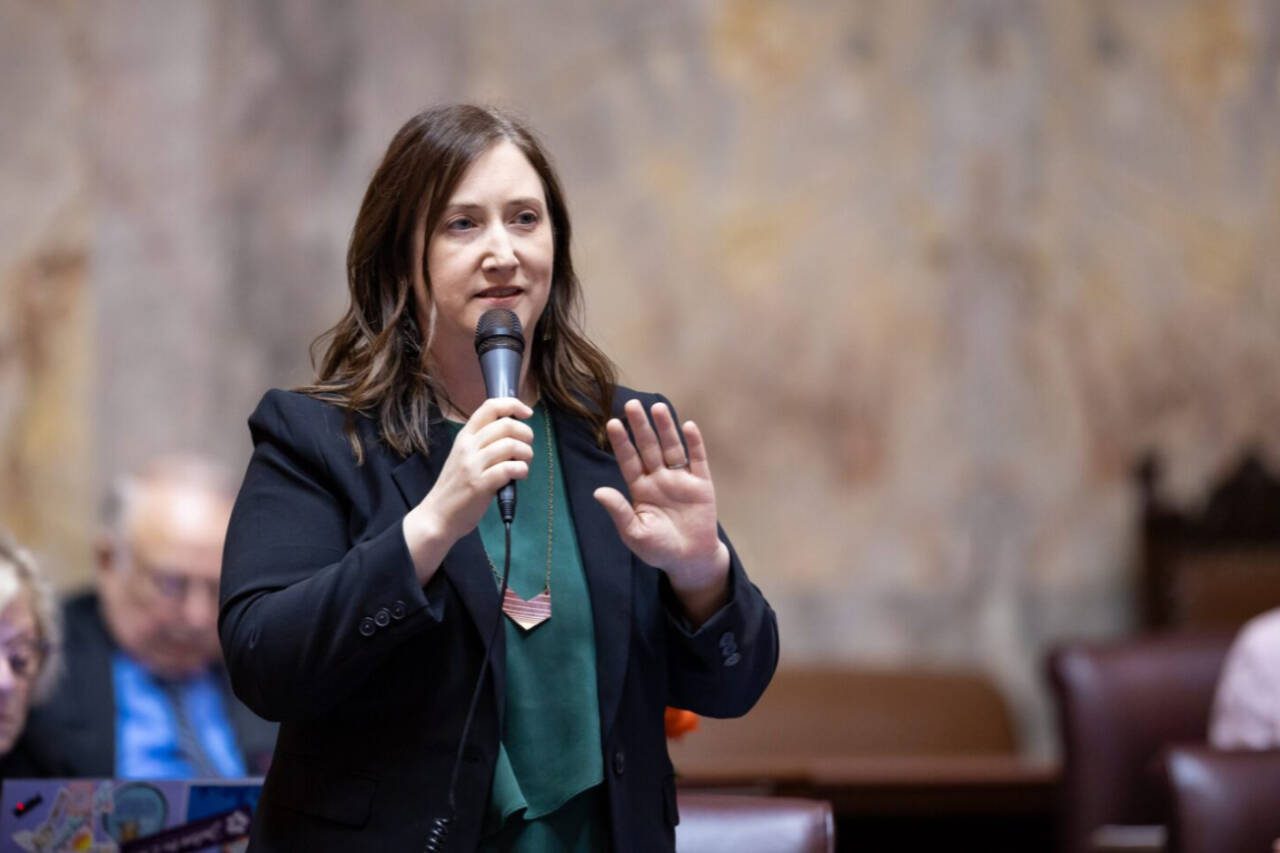By The Herald Editorial Board
There are few areas of lawmaking as fraught with the competing tensions between rights and responsibilities than those involving religion, a necessary result of the constitutional freedom that the First Amendment guarantees for Americans’ exercise of faith.
That tension between rights and responsibilities has been on painful display this legislative session as state lawmakers again consider a bill that would add clergy to the list of those who are considered mandatory reporters of child abuse and neglect.
State law outlines an extensive list of people — with varying levels of contact with children — who are required to report child abuse or neglect to law enforcement or the state’s Department of Children, Youth and Families. Among those mandatory reporters are teachers, coaches and other school employees, law enforcement, health care providers, counselors, guardians and others.
Washington state, however, is one of only five states that does not require mandatory reporting for members of the clergy. Efforts in the Legislature to include clergy as reporters go back several years, but most recently with proposals from state Sen. Noel Frame, D-Seattle, who has identified herself as a victim or child sexual abuse.
“This one is personal for me as a survivor of sexual abuse myself,” Frame said during a January hearing before the Senate’s human services committee. “That abuse only stopped when I told a mandatory reporter, which was a teacher.”
Frame brought her initial bill forward after reading an Investigate West report in October 2022 about a man who had filed suit against a Spokane-area Jehovah’s Witness Kingdom Hall, alleging a decades-old cover-up of child sexual abuse by a church elder.
Legislation she proposed last year passed the Senate — with an exemption for information learned through confession — but died while in the House rules committee following news of investigations of child sexual abuse by the state Attorney General’s Office of three Catholic Church dioceses in the state.
Frame’s bill this time — Senate Bill 5375 — does not include the same exemption regarding the rite of confession, but would not compel a clergy member to testify as a witness, only to report what is known to authorities.
The legislation, Frame said, “is about us being able to have children know that they can trust adults in their lives, particularly members of the clergy who have really important and intimate relationships with these families and kids.”
The bill’s requirement to require reporting, including that learned during confession, has again drawn opposition, particularly from the Catholic Church.
The Rev. Frank Schuster, auxiliary bishop of Seattle, speaking during the committee hearing, argued that priests in the Catholic Church are trained to serve as mandatory reporters, but sought protection for “the rite of penance.”
“It’s an act of worship,” Schuster said. “It’s a prayer for us, and the seal of confession is essential to that rite, because a penitent has the right to confess their sins without worrying their sins will become public.”
The penalty for breaking that seal, he said, was excommunication.
Yet, others, notably other victims of sexual abuse as children, said that religious responsibility paled against the concerns for the well-being of children.
Mary Dispenza, an author and activist with the Survivors Network of those Abused by Priests, is a survivor of child rape by a parish priest that started when she was 7. Dispenza, who entered a convent at 18 and became a nun, said she reported her rape as a young woman during confession.
“He did not report this crime,” she told the committee. “The seal of confession and state law reporting exemptions gave the priest the right to not report, thus protecting the perpetrator and denying me services that could have helped me and other children.”
The offending priest, she said, continued to abuse and rape young girls for four decades.
“I carried the weight and secrecy until I was 52. Soon I will be 85, and I do not understand why any religion would want the freedom to keep child abuse secret. The sexual abuse of children and hiding it are not worthy of our protection,” she said.
The legislation passed the Senate last week and now goes to the House. Frame defends her legislation as adopted in her chamber.
“I have tried really hard over the last couple of years to find a balance and to strike a careful compromise,” she said. “For those who I try to work with, I’m really sorry that I don’t feel like I can make a compromise for you anymore. And I stand by the bill with no exemption.”
Mandatory reporting laws, of course, can not be seen as the only step necessary. Those individuals and organizations that play a part in the lives of children — contributions that are immensely valuable — still have huge responsibilities for vetting and supervising those professionals and volunteers who work with children.
And lawmakers — at state and federal levels — have duties beyond such reporting laws to assure ample support of the well-being of children and families.
As important as the rite — the act of confession — is to the spiritual lives of believers, the welfare of children should be recognized as having greater consequence because of the generational trauma that often results from abuse and neglect.
Silence — after being confronted with a child’s plea for help — is cruelty.
Talk to us
> Give us your news tips.
> Send us a letter to the editor.
> More Herald contact information.

























